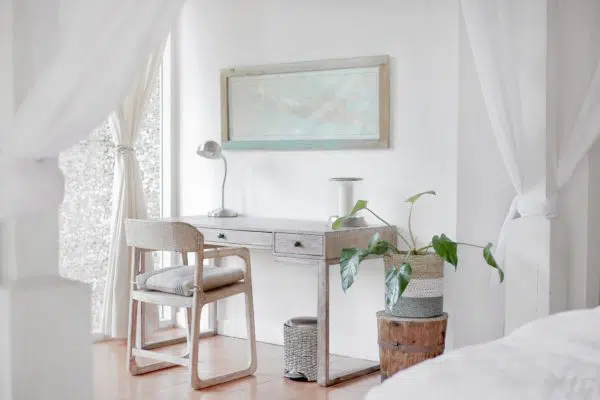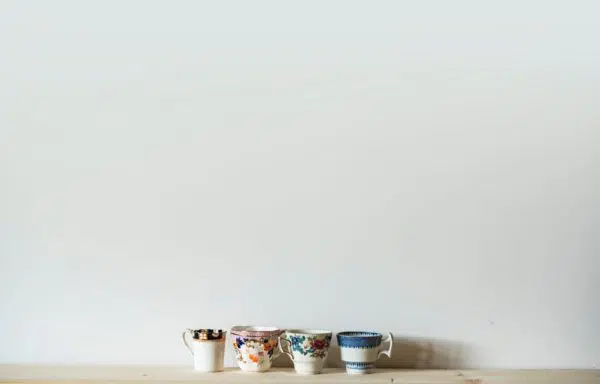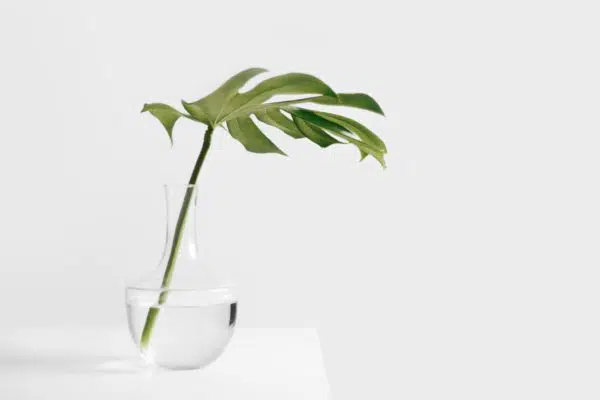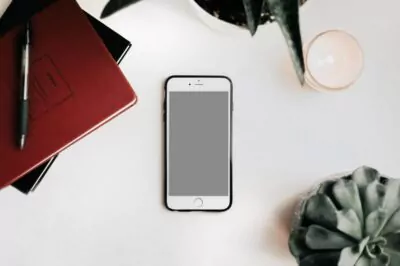Table of Contents[Hide][Show]
Minimalism by definition is, “a small number of very simple things used to create a particular effect.”
The concept of a minimalist life, in contrast, has been created, defined and redefined. There are a variety of interpretations of what exactly it takes to live a life of minimalism. Regardless which interpretation is embraced, it is unanimously seen as a healthy concept that can lead to a less stressful life.
With the focus on healthy lifestyle choices across the media, minimalism has been sweeping communities across the world with intrigue and planting seeds for a new, more thoughtful way to live.
a minimalist life
Personally, I strive to be a minimalist and each year work to further build habits into my life that make it feasible to live minimally even as my life changes. I have been living with this mindset for so long I don’t recall a time without it.
I have not documented this journey; I don’t have a blog or Youtube channel to prove that I have taken significant steps toward living this way. You’re just going to have to trust me when I tell you that I lived in a bus as a family of 6 in my youngest years, that in the 80’s (for a time) my mom and 3 sisters lived in an old Chevrolet, that I moved countless times before I was 25 and in the experience of those years, “stuff” permanently took on a different meaning to me.
I Didn’t Look in the Mirror for a Week: Here’s What I Learned
how do we accumulate so many things?
It is easy to be a minimalist when you are moving regularly or you know a move is coming on the horizon. Until I was in my mid-twenties all of my belongings could be, easily, numerically counted. However, 12 years ago, I did what felt like the impossible for me and settled and stayed in one place. In these last 12 years, I finally discovered how people accumulate SO MUCH STUFF!
When I moved to SF, in 2007, all my belongings still fit into my 2-door ’94 Honda Accord. If I move now, I will need a truck large enough to accommodate a 3 bedroom apartment amount of stuff. Yikes, right?!?

taking stock of what you have
I am not sure where I became exposed to minimalism as a concept, but for as long as I can remember, I have felt the accumulation of belongings like a rising tide. Perhaps it’s because of how I grew up, always aware that if you collected things you would eventually need to leave them behind, gift them on, or lug them on your back or make numerable exhaustive trips back and forth to move it all around with you as you relocate.
I have successfully minimized my skincare, makeup, hair care, dental care, groceries, house cleaning supplies, and my wardrobe all to levels I am happy with that I consistently revisit and keep minimal with ease.
Yet, I have failed in many other areas and restart toward minimalism again and again. So, with my unique life experience and consistent commitment to minimizing, how did I accumulate so much stuff?
even a minimalist can’t escape accumulation…
It’s a typical modern consumer’s tale. Having had numerous roommates, each leaving things behind. Having moved my business into the house – which is an entire professional room all on its own. Having my love move in and work out of the house as well. Having gone to a myriad of costume parties at regular intervals and festivals enough times that maintaining camping survival kits and costume bins now make more sense than having a raincoat.
It’s easy to see how the collection of things became a quick and overwhelming tide that’s crashed and coated the space all around.
In contrast to how I feel, if you came over, you probably wouldn’t feel overwhelmed. Everything has a home and nothing feels cluttered. Yet, I feel all the items around me like living, breathing possessions. I consciously spend time putting things away. Every. single. day. without. compromise.
Those two things keep my home in check. So, it’s warm and cozy and uncluttered and many clients and friends have shared it is calming and brings them peace to be here in the space. This brings me joy and at the same time, behind the scenes, I thoughtfully and religiously have been working ever closer to an even more minimalist life.
Keeping a minimalist perspective
Even though from others perspective the home already appears minimalist without being Spartan, I know I am still only a striving minimalist. To me, it’s not actually about how things look at all. It’s how we approach new purchases. It’s when we invest our money with the preference toward experiences, not things. It’s how the things we collect, cherish and use ultimately affect our happiness, health and the planet.
Minimalism also easily conjures up the image of a blank slate, the same image many of us have when we approach the New Year. With the blank slate of 2019 ready to fill, I find myself dedicated to beginning again with a stronger dedication to living a minimal, conscious life.
I am revisiting the same actions I always find helpful and have compiled them into a list of 5 tiny actions you can embed into your New Year’s goals with ease.

5 Tiny Changes to your life That Help Build Minimalism
If you are just starting out with lifestyle changes toward minimalism, you already are a minimalist or you are a striving minimalist like me these actions are all things I have done, found doable and are tiny enough to stick to as New Year Resolutions.
1. Single-Tasking
Minimalism isn’t only about stuff! Science shows multi-multi-tasking is more stressful and single-tasking can actually be lead to more productivity and more fulfilling conversations.
Begin single-tasking by giving your undivided attention to one thing. In other words, be fully present at the moment by not multi-tasking. This can be surprisingly challenging at first since so many of us are used to multi-tasking constantly throughout the day. To make it an actionable and memorable practice, choose one action or habit you regularly multi-task during, and minimize your actions down to one during that time.
How does this look in practice?
When with friends out to eat, resolve to put away your phone. Be present with your friends, not also scrolling through social media, looking something up “real quick”, or checking your messages from work.
Already do this? You’re awesome and I am sure your friends appreciate it. 🙂
Its about simplifying
Other examples are when you are waiting in line – just be there, not on your phone. When you are working out, turn the music off. When you are on the phone with a friend don’t do laundry, dishes or other actions, simply sit as though they are there with you.
There are many opportunities to practice that will balance our habit of multi-tasking. Be simple or get creative, either way, simplify your actions and feel the positive effects of this tiny change.
2. One in / One Out
A classic minimalism rule to help people keep their lives minimal is that every time you bring something in, you remove something. This keeps your stuff from multiplying steadily and building into an overwhelming amount of belongings.
It is a perfect method for the successful minimalist to keep their space clear, but also a really great habit for those beginning minimalism because it is emotionally easier to remove items when we are bringing items in.
How to make it happen
An efficient way to practice this is to have a donation basket easily accessible. Whenever you buy and bring in new items, immediately remove out the same number of items of similar size and place them into your donation basket.
[Note: keeping a similar size in and out is important. If you bring in a chair and remove out a pen it will defeat the purpose.]

3. Daily Purge
This is a minimalist action that can be simple or a challenging game.
You can choose to remove a single item every day for a set time (items as small as a pen or as large as a piece of furniture—all count) or a set number of items on a specific day of the week (ex: purge 3 items every Sunday). For a more challenging version, you can make it a game and purge for a full month removing the number of items equal to the day of the month. (ex: remove 1 item on the first of the month all the way to purging 30 items on the 30th of the month).
Be sure to continue with ‘one in/one out’
However you apply this practice, removing items daily, weekly or monthly from your life (no matter how small) can make a big impact. If you are removing things but also consistently bringing in new things, you won’t feel much change, so this tiny action becomes most effective when coupled with #2.
4. Tiny Habit
Instead of big resolutions, distill your bigger aspirations down to a tiny habit that can be duplicated easily and will become a foundational trigger towards your larger goal. Sandwich this tiny habit in between other daily rituals you have. It also can be helpful to time how long your tiny habit takes.
Seeing the very insignificant amount of time tiny habits take can help remove the feeling that you don’t have the time for yet another thing. This is an amazing hack to minimize a resolution, accomplish your goals and build habits into your life you really want.
How does this look?
Instead of having the resolution that you will “get more fit,” resolve to practice the tiny habit that you will do 5 pushups per day or 1 Yoga Sun Salutation and do these between other actions that are already part of your daily rituals.
for example:
Make coffee / tea.
Do 5 pushups or 1 Yoga Sun Salutation.
Drink coffee/ tea.
Also, if you time how long it takes you to do 5 push ups or 1 Sun Salutation, it’s actually really short and the feeling that you don’t have time becomes less of a block to doing it daily.
Once you are consistent with this you may find you want to do even more pushups or a few more sun salutations while you are already in the workout mindset. The tiny habit is sure to get you more fit and help you achieve your larger goal for the year.
5. Value Time
So many goals are focused on adding rituals and routine into our year. Instead, consider subtracting an action that is eating up time in your day.
We all wish there was a little more time in the day. This is your opportunity to get honest with yourself about how you’re spending your time and declutter and minimize the chunks of wasted time, ultimately rediscovering and freeing time that disappears each day.
How to evaluate this
What do you do when you wake up? Read an inspirational quote? Listen to a podcast? Meditate? Or do you snooze the alarm or scroll on social media?
Value your time by removing the habit of snoozing or scrolling first thing in the morning. Take back your morning time and use it intentionally to do something you want toward one of your other resolutions – it might even be the perfect time for the tiny habit you committed to in #4.
the positive ripples of minimalism
Hopefully, you find these actions as helpful as I have over the years, they feel like easy options for you to succeed in the quest toward a more minimalist life and they help you create a more meaningful, stress-free year.
At the very least, I hope you try 1, dedicate to it for a week and let me know if you notice any changes. I am counting on it that you will feel the positive ripples of these tiny actions throughout the year!
May this year be minimal in all the best ways!
I Didn’t Look in the Mirror for a Week: Here’s What I Learned
References:
Minimalism: When Living With Less Means More Mental Health
Minimalism is Not Just a Fad: 7 Powerful Ways it Can Lower Work Stress
Definition of ‘minimalism’
A neuroscientist’s baby-step guide from multitasking to single-tasking
The Cost of Interrupted Work: More Speed and Stress
Play the 30-Day Minimalism Game
The Power of Habit: Why We Do What We Do in Life and Business
Atomic Habits: An Easy & Proven Way to Build Good Habits & Break Bad Ones




How do you practice minimalism? Have any of these methods resonated with you? Opening the comments up for discussion.